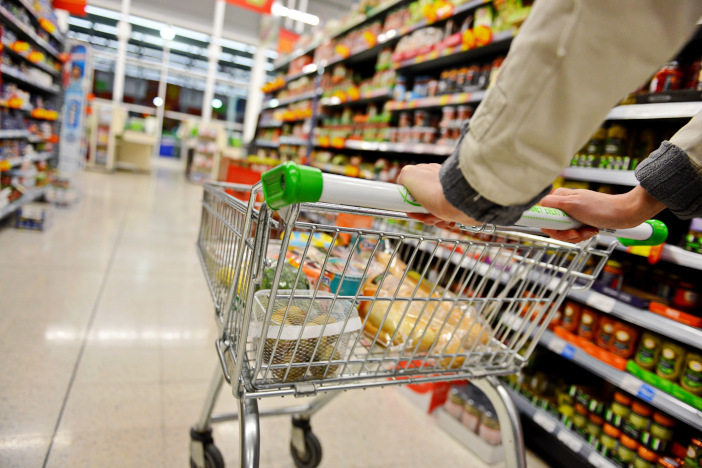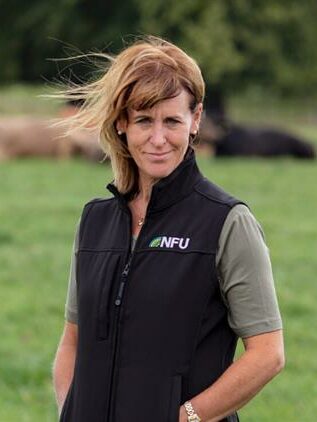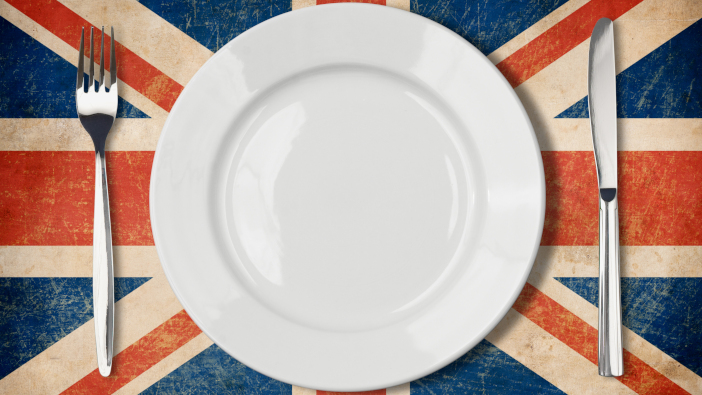A package of reforms to build a better food system has been called for by the National Food Strategy, headed up by food entrepreneur Henry Dimbleby.
The report, which was commissioned by the Government in 2019, sets out how poor diets contribute to around 64,000 deaths every year in England alone, as well as costing the economy an estimated £74 billion. Mr Dimbleby also warns that our eating habits are destroying the environment, which further threatens food security. According to the report, the food consumed accounts for around a quarter of greenhouse gas emissions.
Recommendations include the world’s first Sugar and Salt Reformulation Tax, with some of the money collected being used to expand free school meals and support the diets of those living in the most deprived areas. In addition to this, it calls for food education to be central to the national curriculum and for food standards to be protected in any future trade deals.
Objectives and recommendations
The report is broken down into four objectives, with a series of recommendations of how to achieve them.
OBJECTIVE 1: ESCAPE THE JUNK FOOD CYCLE TO PROTECT THE NHS
Introduce a sugar and salt reformulation tax, using some of the revenue to help get fresh fruit and vegetables to low-income families.
The tax would £3/kg on sugar and £6/kg on salt sold wholesale for use in processed foods, or in restaurants and catering businesses. According to the report, this would create an incentive for manufacturers to reduce sugar and salt levels in their products by either reformulating their recipes or reducing portion sizes.
Modelling suggests this tax would lower the average sugar intake by 4-10g per person per day, and salt intake by 0.2-0.6g per person per day. Average calories consumed by each person per day would reduce by 15-38kcal, which according to the UK’s expert group of calorie reduction, could halt weight gain at a population level.
The tax could also raise between £2.9 and £3.4 billion per year for the Treasury, which could be used to fund a series of measures to support the diets of those in deprived communities.
Introduce mandatory reporting for large food companies

Supermarkets and the hospitality sector have become adept at nudging consumers towards certain products and behaviours, the report states, but CEOs of several major food companies want to do things better following the pandemic.
The report suggests voluntary measures which are monitored and subject to public scrutiny. It’s recommended that a statutory duty is put in place for all food companies (above 250 employees) to publish an annual report on their sales of various food types, including fruit, vegetables, different types of protein and products high in fat, sugar and salt.
Launch a new ‘Eat and Learn’ initiative for schools
To tackle declining culinary skills and knowledge (which is present across every social class since the introduction of convenience food), the report calls for a new initiative in schools.
‘Eat and Learn’ would ensure children start learning about food earlier, with well-funded food lessons which are inspected by Ofstead. The Food A-level should also be reintroduced to give students a clear route into the food industry and additional measures are suggested to improve the overall food culture in schools.
OBJECTIVE 2: REDUCED DIET-RELATED INEQUALITY
Extend eligibility for Free School Meals
After Key Stage 1 (Reception to Year 2) the eligibility threshold for free school meals is set at an annual household income of less than £7,400 before benefits, meaning that only the extremely poor qualify. The report suggests that because of this children from low income families are going hungry at lunchtime.
It calls for the threshold to be increased to £20,000 before benefits. This would mean a total of £1.1 million additional children will receive a freshly cooked, free lunch every day.
Fund the Holiday Activities and Food programme for the next three years
In response to Part One of the National Food Strategy, the Government made Holiday Activity and Food clubs available to children on free school meals for the duration of 2021. These programmes provide activities for children in the school holidays, plus at least one freshly cooked meal a day. The report recommends that these clubs should be extended for at least the next three years, or until the next spending review.
Expand the Healthy Start scheme
Healthy Start is a means-tested scheme for low-income pregnant women and families with children under the age of four. It is also a universal entitlement for mothers under 18. The scheme provides coupons for vitamins and vouchers which can be used to buy fruit and vegetables, as well as milk.
Studies have shown that it plays an important role in helping pregnant women and their children access healthier foods. The report recommends that the Government use proceeds from the sugar and salt tax to expand the eligibility of the Healthy Start vouchers, raising the earnings threshold to £20,000 per year (before benefits) and broadening the age range to cover children up to five.

Trial a ‘Community Eatwell’ programme, supporting those on low incomes to improve their diets
According to the report, 95% of NHS spending goes on treating illness, with just 5% going towards prevention. It argues that it would be more cost-effective to act before people get to the point where they need expensive medical treatment.
Under new recommendations, GPs would be able to prescribe fruit and vegetables, along with food-related education and social support, to patients suffering the effects of poor diet or food insecurity. It is modelled on successful schemes from around the world, including the Product Prescription programme in Washington DC, which has led to around 50% of participants losing weight.
OBJECTIVE 3: MAKE THE BEST USE OF THE LAND
Guarantee the budget for agricultural payments until at least 2029 to help farmers transition to more sustainable land use
The report highlights that the Environmental Land Management Scheme (ELMS) will no longer pay farmers for commercial activities or for simply owning land. However, it is not yet clear how money will be distributed for activities that contribute to the common good, which makes it difficult for farmers to plan ahead.
Furthermore, the budget is only guaranteed up until the end of this Parliament in 2024, which could mean that farmers face a financial cliff edge. The report recommends that Defra guarantee the current level of funding until at least 2029 (the end of the next Parliament) and ensure that ELMS payments are sufficiently generous to make it worthwhile for farmers to move away from conventional practices.
Create a rural land use framework based on the Three Compartment Model
The NetZero pledge is written into law and the only way to meet the targets is to change the way land is used. The report recommends that the Government should create a Rural Land Use Framework, in which some areas are used chiefly for food production, some for nature and carbon sequestration and some for low-intensity, nature-friendly farmland.
To do this, Defra should create a new data map of England, with detailed information on any given area of land, its eligibility for environmental incentive schemes and the uses to which it would be best suited. This will help farmers, landowners and local government make long term decisions.

Define minimum standards for trade, and a mechanism for protecting them
The Government has previously pledged to not compromise high environmental protection, animal welfare and food standards in trade negotiations, yet it has not said which standards it means to protect or how it plans to do this, despite agreeing on a deal with Australia.
In Part One of the strategy, it was proposed that the Government should only agree to cut tariffs on products that meet our core standards, which would remain in the spirit of the pledge without breaking WTO rules.
The Government must now draw up a list of core minimum standards which it will defend in any future trade deals and set out mechanisms to protect these standards. The report states that without this, there is a serious risk that cheap imported food will undermine our own efforts to protect the environment and animal welfare, while also undercutting our own farming sector.
OBJECTIVE 4: CREATE A LONG-TERM SHIFT IN OUR FOOD CULTURE
Invest £1 billion in innovation to create a better food system
The report recommends that the Government should invest £1 billion in research and development to help improve the national diet, develop sustainable farming practices and protect the environment. This could be used to fund a wide range of ideas and initiatives, from methane reducing additives for sheep and cattle, to new agroecological techniques, to long initiatives to improve health outcomes in deprived communities.
Of this, £50 million should go towards building a commercial cluster for entrepreneurs and scientists working on alternative proteins. This would help to launch the UK into a new global industry.
Create a National Food System Data programme
A National Food System Data programme could collect and share data so that businesses and other organisations involved in the food system can track progress and plan ahead.
The programme should span data on farming, nature, food production, distribution and retail and use mapping and visualisation dashboards to make it easier for users to find and compare the information. It could also model future scenarios and assess the effectiveness of different policies or logistical models. This would provide Government and the food industry with an extremely powerful tool for devising, shaping and monitoring a better food system.
Strengthen government procurement rules to ensure that taxpayer money is spent on healthy and sustainable food
At present, the Government spends £2.4 billion each year buying food for schools, hospitals, the armed forces, prisons and government offices. This represents 5.5% of the total UK foodservice turnover. The report recommends that the Government should redesign the Government Buying Standards for Food (GBSF) to ensure that taxpayer money is spent on food that is both healthy and sustainable, and use the updated reference diet to set these standards. Furthermore, it should encourage procurement from local suppliers to improve competition and drive up standards.
Set clear targets and bring in legislation for long-term change
Following legal targets for reducing carbon emissions and protecting nature, the report recommends a statutory target to improve diet-related health. Defra should put a Good Food Bill before Parliament in the fourth session of the current Government.
This should include a range of measures designed to ensure long-term improvement of the food system, including expanding the role of the Food Standards Agency (FSA) to cover healthy and sustainable food, as well as food safety, and to monitor the Government’s progress in the Good Food Bill. An obligation of the FSA should be to create an updated action plan every five years to maintain momentum and a national reference diet should be created (replacing the current health-focused one) that sets out what a healthy and sustainable diet looks like, with a legal obligation on local authorities to develop food strategies.

Responses to the report
The author of the report, Henry Dimbleby, said: “The food system is a logistical miracle, full of amazing, inventive people. With the right leadership from the government, it is well within our power to change the system so it makes both us and the planet healthier.
Currently, however, the way we produce food is doing terrible damage to the environment and to our bodies, and putting an intolerable strain on the NHS.
Covid 19 has been a painful reality check. Our high obesity rate has been a major factor in the UK’s tragically high death rate. We must now seize the moment to build a better food system for our children and grandchildren.”
Helen Browning, Chief Executive of the Soil Association, said: “Everyone knows farming has to change if we are going to meet our climate and biodiversity goals and improve the health of the nation. But it is far, far easier said than done. Dimbleby offers a nuanced and imaginative way forward, one which harnesses the capacity of farmers and land managers to be a major part of the solution in tackling these challenges, while being fairly rewarded for their hard work and ingenuity. Many farmers are up for the challenge, but will need these recommendations to be implemented to make this possible.”
Mark Bridgeman, President of the Country Land and Business Association, said: “The National Food Strategy is a welcome addition to the debate about the future of land use and food production in the UK. The strategy highlights the need to properly reward farmers for environmental improvements above and beyond what they already do, and rightly recognises the world class environmental and animal welfare standards of British food. It is precisely because of these standards that Government and industry can argue with confidence that consumers should buy British meat, fruit and vegetables as part of a healthy and environmentally conscious diet.”
The NFU responds to the National Food Strategy
NFU President Minette Batters said: “This food strategy should act as a wake-up call for us all that we need to value the food we eat. We need to put balance back in our diet and have a renewed emphasis on eating natural, whole foods; the kind British farmers produce in abundance.
“I agree that we should be supporting everyone to eat more fruit and veg, something our farmers can support by growing more, and there should be more focus on educating our children about valuing and understanding the food they eat and how it has been produced.

“However, it is important that we do not throw meat into one blanket category and that we all make a clear distinction between grass-fed British meat and cheap imports.
“We should be considering British meat in its own category, recognising its sustainability and dense nutritional value. After all, scientific and medical communities agree it is a key part of a healthy, balanced diet, chock full of essential vitamins and minerals.
“This strategy says major reform is needed of the food system. I would suggest we first look at the actions our government is taking by agreeing to trade deals that welcome imported meat in limitless amounts.
“This underlines the importance of domestic, high-quality, traceable food production for the nation’s health and wellbeing and the importance of demonstrating global leadership in this area. This is only something we can do if we all get behind a viable British farming industry. It will never be achieved by exporting our food production more and more to countries which don’t adhere to the same values or production methods.”


